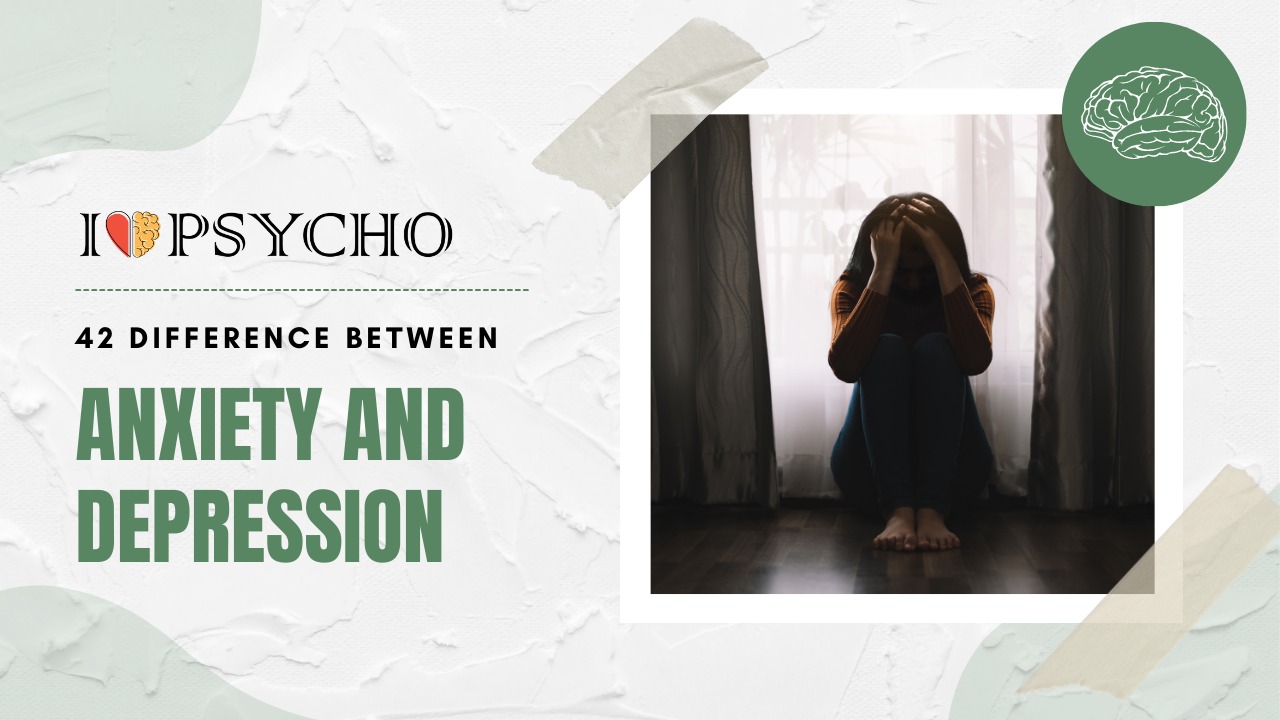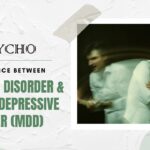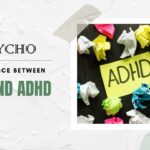Anxiety and depression often coexist. Its symptoms, causes, and treatments vary. To effectively identify and treat them, you must understand their differences.
Anxiety occurs when you obsess over the future. Restlessness, a rapid pulse, and perspiration commonly follow. Anxiety causes racing thoughts, difficulty focusing, and increased alertness. It can cause generalized anxiety disorder, panic disorder, social anxiety disorder, or particular anxieties. Genes, brain chemical imbalances, stress, and long-term stress can induce anxiety.
However, depressed individuals feel hopeless and lose interest in things they used to like. It can affect your sleep, eating, and concentration, and even make you consider suicide. Depression is multifaceted. Major depressive illness, dysthymia, and bipolar disorder with depressive episodes are prevalent. Genes, brain chemicals, hormones, trauma, and long-term stress can cause depression.
They affect you differently. Depression is pessimism and unhappiness from the past or present, whereas anxiety worries about the future. Anxious individuals worry about the future and have a speeding mind, whereas sad ones ruminate about past errors or how empty they feel. Anxiety and depression often occur together, despite their differences. This overlap can worsen symptoms and make treatment tougher, therefore a comprehensive approach that tackles both illnesses is essential.
Worry and grief are treated differently. CBT and exposure therapy are used to alleviate anxiety. SSRIs treat both issues. Manic depression can be treated with various medications and mood stabilizers. Anxiety and sorrow share certain emotions, but they are separate mental health illnesses with different origins, symptoms, and treatments. Recognizing these changes helps assess and customize treatment. Understanding anxiety and melancholy helps people seek better mental health treatment and regain control.
|
S. No. |
Aspect |
Anxiety |
Depression |
|
1 |
Core Emotion |
Intense worry, fear, or apprehension |
Persistent sadness, emptiness, or hopelessness |
|
2 |
Focus of Apprehension |
Worrying about future events, uncertainties |
Focused on past failures or negative experiences |
|
3 |
Physical Symptoms |
Fatigue, changes in appetite or sleep patterns |
|
|
4 |
Cognitive Symptoms |
Excessive rumination, racing thoughts |
Negative thought patterns, self-criticism |
|
5 |
Emotional Responses |
Fear, irritability, restlessness |
Profound sadness, anhedonia (loss of pleasure) |
|
6 |
Fight or Flight Response |
Often heightened and persistent |
May be blunted or diminished |
|
7 |
Fear Triggers |
Specific situations or triggers |
Not necessarily tied to specific triggers |
|
8 |
Cognitive Bias |
Catastrophic thinking, overestimation of threat |
|
|
9 |
Physical Symptoms |
Sweating, trembling, muscle tension |
Aches and pains, psychomotor agitation |
|
10 |
Duration of Symptoms |
Can be episodic or chronic |
Typically persistent for weeks or months |
|
11 |
Social Interaction |
Often accompanied by restlessness |
Often leads to social withdrawal |
|
12 |
Physiological Arousal |
High levels of arousal and tension |
Reduced energy and overall slowdown |
|
13 |
Response to Stressors |
Heightened response to stressors |
Reduced response and motivation |
|
14 |
Sleep Disturbances |
Difficulty falling asleep or staying asleep |
Insomnia or excessive sleeping |
|
15 |
Impact on Decision-Making |
May lead to indecisiveness |
Often leads to difficulties in making decisions |
|
16 |
Focus on the Present |
Often anxious about future events |
Often dwelling on past events |
|
17 |
Physical Symptoms |
Often manifests as a “fight or flight” response |
Not characterized by heightened physical arousal |
|
18 |
Anticipatory Anxiety |
Worrying about upcoming events or situations |
Less focused on anticipation |
|
19 |
Treatment Approach |
Cognitive-behavioral therapy, exposure therapy |
Psychotherapy, medication, lifestyle changes |
|
20 |
Response to Threats |
Heightened response to perceived threats |
Often a diminished response to stimuli |
|
21 |
Suicidal Thoughts |
May be present, especially in severe cases |
More common in severe depressive episodes |
|
22 |
Emotional Expression |
Anxiety may involve agitation or restlessness |
Depression may involve apathy or emotional numbness |
|
23 |
Emotional Triggers |
Often tied to uncertainty or unpredictability |
Often tied to feelings of hopelessness or despair |
|
24 |
Focus on Thoughts |
Anxious thoughts often jump between different concerns |
Depressive thoughts may fixate on self-worth |
|
25 |
Cognitive Distortions |
Often involves catastrophic thinking |
Often involves all-or-nothing thinking |
|
26 |
Response to Stressors |
Hypervigilance and heightened reactivity |
Decreased reactivity and motivation |
|
27 |
Physiological Responses |
Heightened physiological arousal |
Reduced physiological arousal |
|
28 |
Treatment Modalities |
Cognitive-behavioral therapy, exposure therapy |
Cognitive-behavioral therapy, medication, support groups |
|
29 |
Coping Mechanisms |
May involve avoidance of triggers |
May involve withdrawal or isolation |
|
30 |
Elevation of Heart Rate |
Often seen in anxiety |
Less pronounced in depression |
|
31 |
Panic Attacks |
Often associated with anxiety disorders |
Not a defining feature of depression |
|
32 |
Flight Response |
Often more prominent in anxiety |
Less prominent in depression |
|
33 |
Cognitive Processing |
Overactive cognitive processing |
Slowed cognitive processing |
|
34 |
Diagnosis Criteria |
DSM-5 criteria for anxiety disorders |
DSM-5 criteria for mood disorders |
|
35 |
Physical Symptoms |
May include gastrointestinal discomfort |
Physical discomfort may be common |
|
36 |
Focus on Control |
Often focused on external control |
Often focused on internal sense of control |
|
37 |
Energy Levels |
Often high energy or restlessness |
Often low energy or fatigue |
|
38 |
Psychological Impact |
Focused on potential future outcomes |
Focused on past experiences or perceived failures |
|
39 |
Triggers |
Often linked to specific fears or worries |
Triggers may not be as specific |
|
40 |
Attention Allocation |
Often spread across various concerns |
May be predominantly focused on negative thoughts |
|
41 |
Coping Strategies |
May involve avoiding triggers or situations |
May involve seeking isolation or withdrawal |
|
42 |
Neurotransmitter Involvement |
Involves GABA, serotonin, norepinephrine |
Involves serotonin, norepinephrine, dopamine |
Frequently Asked Questions (FAQ).
Q1. What is the main difference between anxiety and depression?
Anxiety is an excessive concern, anxiety, and apprehension about future events, frequently with bodily manifestations. Depression, on the other side, causes melancholy, despair, and a loss of interest in activities.
Q2. Can anxiety and depression occur together?
Anxiety and depression can coexist. This is called “comorbid anxiety and depression.” Both illnesses complicate diagnosis and therapy, requiring a thorough approach.
Q3. How are anxiety and depression diagnosed?
Mental health professionals analyze patients to diagnose. Interviews, questionnaires, and observation can assess symptoms, duration, and daily life effects. Differential diagnosis determines anxiety, depression, or both.
Q4. Are there effective treatments for anxiety and depression?
Anxiety and sadness are treatable. Psychotherapy, medication, lifestyle modifications, and holistic approaches like mindfulness and relaxation are all possible treatments.
Q5. Can anxiety or depression be cured completely?
While complete “cures” may not be attainable, many people achieve considerable symptom improvement and management with adequate therapy. Early intervention, effective therapy, and continued support can improve quality of life and disease management.









